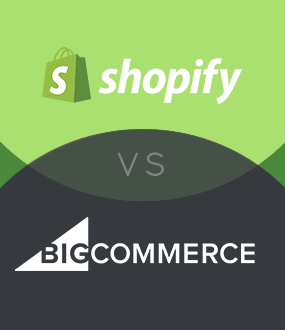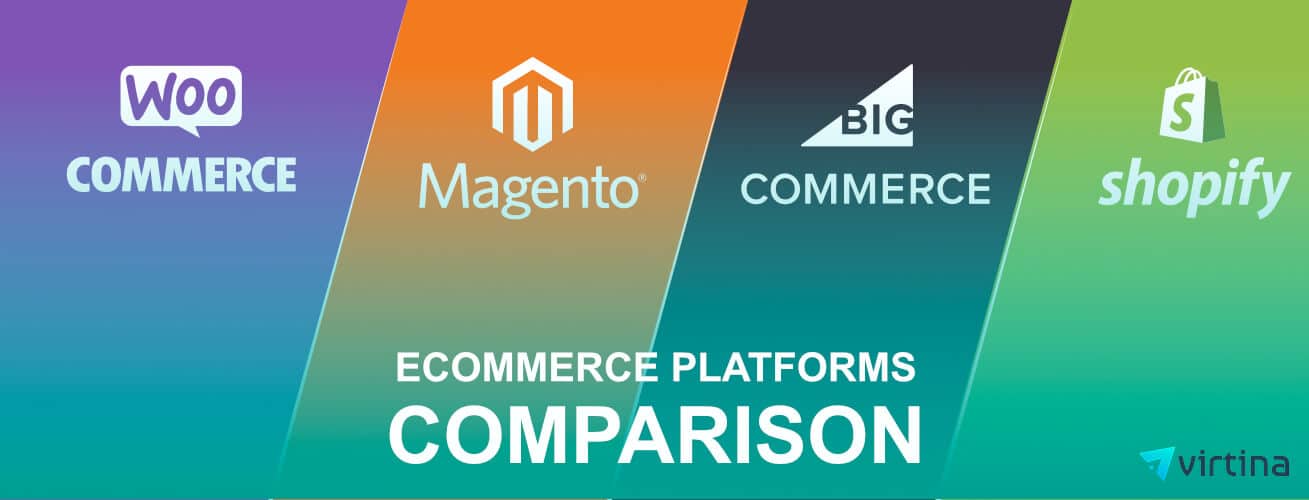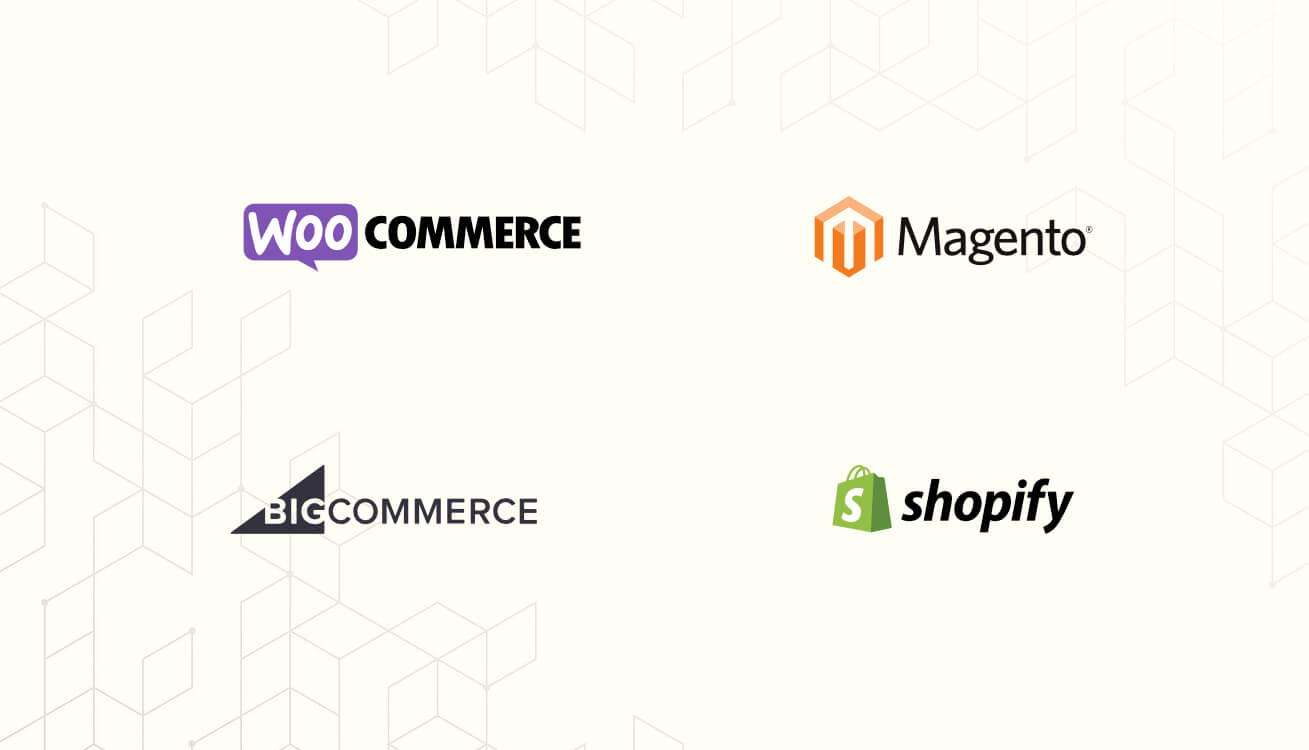In today’s digital world, choosing the right e-commerce platform is crucial for business success. Shopify and BigCommerce are two of the leading players in this field, each offering unique features and benefits. This comparison will delve into their functionalities, pricing, and user experience to help you determine which platform best meets your business needs.
Overview of Shopify Features
 Shopify is renowned for its user-friendly interface, making it accessible for newcomers to e-commerce. Here are some key features:
Shopify is renowned for its user-friendly interface, making it accessible for newcomers to e-commerce. Here are some key features:
- Ease of Use: Shopify’s intuitive setup allows users to create an online store without extensive technical knowledge.
- Themes and Design: The platform offers a wide variety of customizable themes to create visually appealing storefronts.
- App Store: Shopify has a robust app ecosystem, allowing users to add functionalities such as inventory management, marketing tools, and analytics.
- Payment Gateway Options: Supports multiple payment gateways, including its own Shopify Payments, enhancing flexibility for transactions.
- SEO Features: Built-in SEO capabilities help merchants optimize their stores for better visibility on search engines.
- Customer Support: 24/7 customer support through various channels, including chat, email, and phone, ensuring users can resolve issues promptly.
Overall, Shopify stands out for entrepreneurs seeking a straightforward, reliable platform to launch and grow their online stores. Its focus on simplicity, a rich app ecosystem, and strong customer support make it a top choice for many businesses.
Ease of Use and User Experience
 When it comes to choosing an e-commerce platform, one of the most crucial factors to consider is how easy it is to use. Both Shopify and BigCommerce are designed with user-friendliness in mind, but they cater to slightly different audiences. Shopify is often celebrated for its intuitive interface. Setting up your store can be accomplished within a few clicks, making it ideal for beginners. The dashboard is clean and easy to navigate, allowing users to quickly locate features. Here are a few highlights of Shopify’s user experience:
When it comes to choosing an e-commerce platform, one of the most crucial factors to consider is how easy it is to use. Both Shopify and BigCommerce are designed with user-friendliness in mind, but they cater to slightly different audiences. Shopify is often celebrated for its intuitive interface. Setting up your store can be accomplished within a few clicks, making it ideal for beginners. The dashboard is clean and easy to navigate, allowing users to quickly locate features. Here are a few highlights of Shopify’s user experience:
- Drag-and-Drop Functionality: You can easily customize your store layout without coding knowledge.
- Themes and Templates: A vast selection of responsive themes to fit your brand identity.
- Quick Setup: Most users can get their store up and running in just a couple of hours.
On the other hand, BigCommerce is slightly more complex, which can be a double-edged sword. It offers more built-in features compared to Shopify, which can be beneficial—but it also means there’s a steeper learning curve. Here are a few aspects of BigCommerce to consider:
- Advanced Features: Greater functionality right out of the box, which might overwhelm newcomers.
- Customization Options: More flexibility in terms of product options and checkout processes.
- Robust Analytics: Offers in-depth reporting tools to help you track your store’s performance.
In summary, if you prioritize simplicity and speed in getting your store online, Shopify might be your best bet. Conversely, if you’re looking for a platform with advanced features and don’t mind investing time in learning the ropes, BigCommerce could be the way to go.
Support and Resources Offered by Each Platform
 When you’re running an online store, having reliable support and resources can make all the difference. Both Shopify and BigCommerce offer extensive customer service options, but they differ in approach and availability. Shopify provides 24/7 support through various channels, including:
When you’re running an online store, having reliable support and resources can make all the difference. Both Shopify and BigCommerce offer extensive customer service options, but they differ in approach and availability. Shopify provides 24/7 support through various channels, including:
- Live Chat: Quick responses for urgent questions.
- Email Support: For non-urgent inquiries, you can send an email and expect a response within a few hours.
- Phone Support: Speak directly to a representative for personalized assistance.
- Help Center: A comprehensive knowledge base filled with articles, guides, and tutorials.
Additionally, Shopify boasts an extensive community forum where you can engage with other users, share experiences, and find tips. BigCommerce also offers 24/7 support, but with a few different features:
- Live Chat and Phone Support: Similar to Shopify, but with a reputation for offering more in-depth technical assistance.
- Email Support: Response times can vary, but generally, they’ll get back to you promptly.
- Support Documentation: BigCommerce has a robust library of documentation, including video tutorials and webinars designed to help users navigate the platform.
In conclusion, both platforms have made significant investments in customer support, but your preference may depend on how you like to receive help. If you value a community-driven approach, Shopify might be for you. However, if you need in-depth technical support, BigCommerce could be the better choice.
Scalability and Growth Potential
 When it comes to e-commerce platforms, scalability and growth potential are crucial factors to consider. As your business expands, you want a platform that can keep up with your growing needs. Let’s delve into how Shopify and BigCommerce measure up in this area. Shopify: Known for its user-friendly interface, Shopify is an excellent choice for startups and small businesses looking to scale. As you grow, Shopify provides a range of plans and features, including:
When it comes to e-commerce platforms, scalability and growth potential are crucial factors to consider. As your business expands, you want a platform that can keep up with your growing needs. Let’s delve into how Shopify and BigCommerce measure up in this area. Shopify: Known for its user-friendly interface, Shopify is an excellent choice for startups and small businesses looking to scale. As you grow, Shopify provides a range of plans and features, including:
- Easy upgrade options to different tiers with added functionalities.
- Shopify Plus for enterprise-level needs, which offers advanced features and dedicated support.
- A vast app marketplace to enhance your store’s capabilities without heavy technical knowledge.
Its performance remains solid even under high traffic, making it suitable for seasonal surges or rapid growth phases. BigCommerce: This platform is designed with scalability in mind right from the start. Businesses that anticipate significant growth may find BigCommerce particularly appealing. Here’s what it offers:
- No additional transaction fees across all plans, which is beneficial as your sales volume increases.
- Customizable APIs for a higher level of integration, allowing you to build complex functionality as your business scales.
- Robust tools for SEO and marketing, which can help to drive traffic and sales as your brand grows.
Ultimately, both platforms boast impressive scalability, but if you foresee rapid growth, BigCommerce’s depth in features might give it the edge. However, Shopify’s ease of use will appeal to newer businesses aiming to expand smoothly.
Integrations and Customization Options
In the world of e-commerce, integrations and customization are key to creating a tailored shopping experience and optimizing your business operations. Let’s take a closer look at what Shopify and BigCommerce have to offer in these areas. Shopify: One of the standout features of Shopify is its app ecosystem, which allows you to enhance your store with a variety of third-party integrations. Here are some highlights:
- Over 3,000 apps available on the Shopify App Store, covering everything from marketing and SEO to shipping and customer service.
- Easy integration with popular payment gateways like PayPal, Stripe, and more, making transactions seamless for customers.
- Capability to add custom code through Liquid, Shopify’s templating language, for further customization of your store’s appearance and functionality.
However, larger customizations may require some coding knowledge or hiring a developer. BigCommerce: BigCommerce also shines in terms of integrations, focusing on providing robust built-in features along with extensive customization options. Key offerings include:
- Seamless integrations with various payment processors, including Braintree and Authorize.net, without needing additional fees.
- Built-in SEO tools that enable easier optimization of your site without relying solely on apps.
- Greater flexibility with the ability to customize your HTML, CSS, and JavaScript, making it easier to create a unique storefront.
While both platforms offer a range of integrations and customization options, Shopify may have an edge in the sheer volume of apps, while BigCommerce is often preferred for its depth and built-in functionalities. Your choice will largely depend on your specific needs and how much you want to customize your shop.
Shopify vs BigCommerce: Which E-Commerce Platform Is Right for You?
When it comes to setting up an online store, selecting the right e-commerce platform is crucial. Shopify and BigCommerce are two of the leading options available today, each with unique features catering to different business needs. Understanding the strengths and weaknesses of both can help you make an informed decision.
Shopify: Key Features
- User-Friendly Interface: Shopify offers an intuitive interface that makes it easy for users of all skill levels to set up and run their stores.
- Extensive App Store: With over 4,000 apps available, merchants can easily expand their store’s functionality.
- Payment Options: Shopify supports numerous payment gateways, including its own Shopify Payments, which simplifies transaction processing.
- Mobile Responsiveness: Shopify themes are designed to be mobile-friendly, enhancing the shopping experience on smartphones and tablets.
BigCommerce: Key Features
- Built-In Features: BigCommerce offers more built-in features compared to Shopify, reducing the need for third-party apps.
- SEO Friendly: BigCommerce provides advanced SEO tools to help improve online visibility and drive organic traffic.
- Scalability: Designed for growing businesses, BigCommerce easily supports larger product catalogs and higher transaction volumes.
- Multi-Channel Selling: Integration with major marketplaces like Amazon, eBay, and social media platforms is seamless.
| Feature | Shopify | BigCommerce |
|---|---|---|
| User Interface | Easy to use | Intuitive but can be complex |
| Built-in Features | Many require apps | Rich set of built-in features |
| Payment Gateways | Multiple options available | Support for many gateways |
| SEO Capabilities | Basic SEO features | Advanced SEO tools |
In conclusion, the best platform for you depends on your specific needs. If you prioritize ease of use and third-party integrations, Shopify might be ideal. However, if you seek robust built-in features and are focused on SEO and scalability, BigCommerce could be the better choice. Evaluate your business goals, technical expertise, and growth expectations to make an informed decision.


